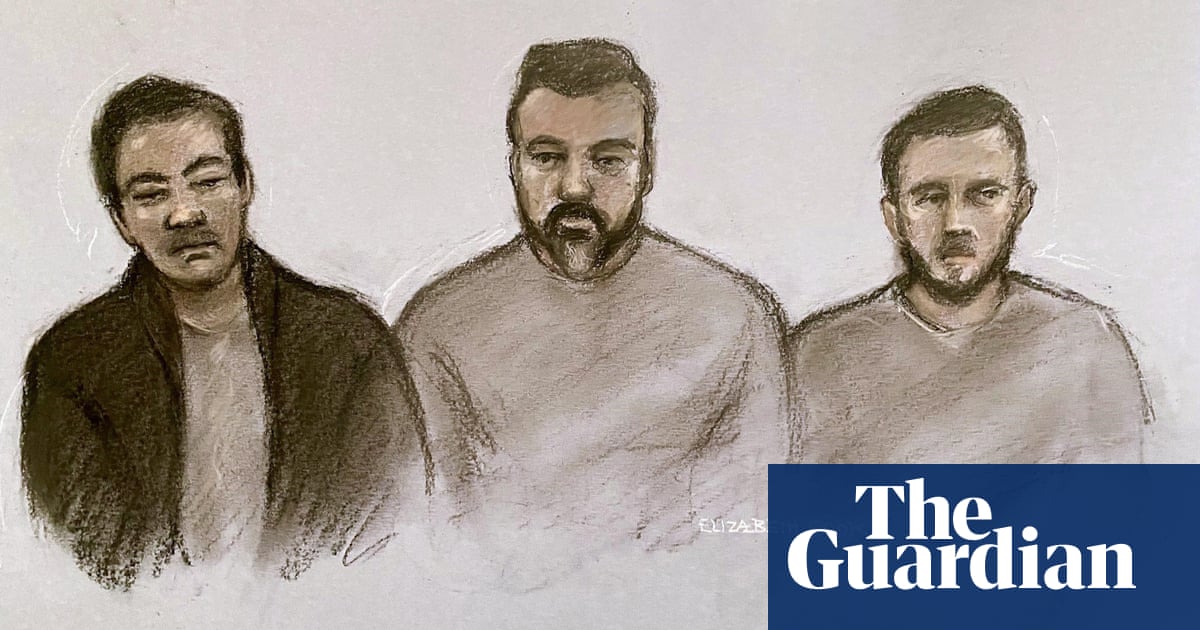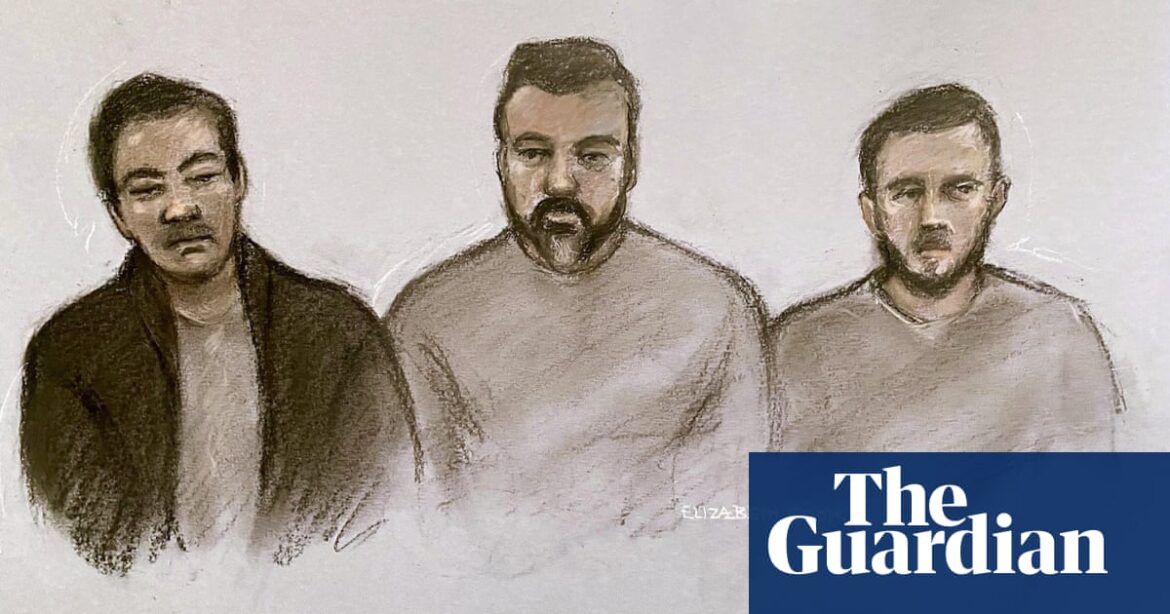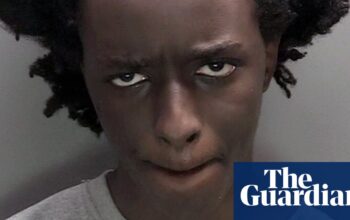
A Hong Kong trade official working in London has appeared in court alongside a Border Force officer and an immigration enforcement official accused of monitoring, surveillance and harassment of pro-democracy activists in the UK.
The three men, Chung Biu Yuen, 63, Chi Leung “Peter” Wai, 38, and Matthew Trickett, 37, have been charged with unlawfully assisting the Hong Kong intelligence service and engaging in foreign interference by forcing entry into a British address.
Yuen, of Dalston, east London, works as an office manager at Hong Kong’s Economic and Trade Office, an organisation responsible for trade and investment on behalf of the former British colony that is now a semi-autonomous region of China.
Wai, a dual Chinese and British national, works in Border Force at Heathrow. He is also a City of London special constable and the founder of a private security firm, D5. Its website describes him as having “over 20 years’ experience in the British military, police and private security sector”.
Trickett, a Home Office immigration enforcement officer, also runs a private security consultancy. His profile on LinkedIn lists him as being a former Royal Marine commando.
The three spoke only to confirm their names, ages and addresses at an initial hearing at Westminster magistrates court on Monday.
All three men were charged with engaging in unlawful information gathering, surveillance and acts of deception between 20 December 2023 and 2 May 2024, contrary to section 3 (1) and (9) of the National Security Act 2023.
They are also accused of forcing entry into a UK residential address on 1 May 2024, being reckless as to whether the prohibited conduct, or course of conduct of which it forms part, would have an interference effect, contrary to section 13 (2) and (7) of the act.
At least 140,000 people from Hong Kong have relocated to the UK since February 2021, when new visa rules allowed people holding British National (Overseas) passports to live and work in Britain.
That followed the passage of a new national security law in Hong Kong and a crackdown in the territory, which the UK said violated guarantees of freedom made by China when it resumed control in 1997.
China’s embassy in the UK said prosecutors had made an “unwarranted accusation” against the Hong Kong government and it had responded by making “solemn representations” to its British counterparts on the case.
There was also reaction from China’s foreign affairs commissioner office in Hong Kong. It said it “strongly condemned” Britain for “cooking up charges” and accused it of a “vicious intention to interfere” in Hong Kong’s affairs.
The office also warned that Britain would receive “China’s firm and strong retaliation”.
After a short hearing on Monday lunchtime, the three men were given bail by the district judge, Louisa Cieciora. They are required to report weekly to a local police station, are subject to a 10pm-5am curfew and are banned from travelling abroad.
They are next due to appear at the Old Bailey on 24 May.
The three were originally detained as part of a larger operation during which 11 people were arrested at the beginning of the month. Eight men and a woman were arrested by officers on 1 May in Yorkshire, and one man was arrested in London and another in Yorkshire the following day, the Met said.
The seven men and one woman who were not charged were released from custody on or before 10 May.
Commander Dominic Murphy, the head of the Met’s counter-terrorism command, said: “While these offences are concerning, I want to reassure the public that we do not believe there to be any wider threat to them. This investigation remains ongoing, but now that charges have been brought, I urge people not to speculate or comment further in relation to this case.”
The National Security Act came into force on 20 December last year and updated and revised Britain’s espionage legislation, including the Official Secrets Acts dating to 1911.
Source: theguardian.com



